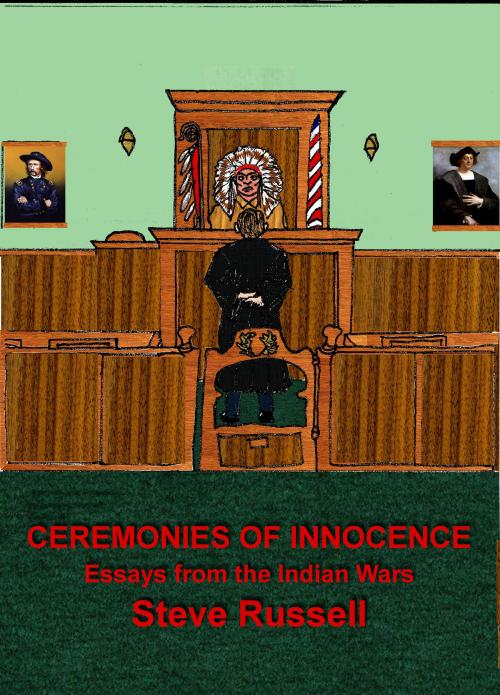Ceremonies of Innocence
Essays from the Indian Wars
Nonfiction, Social & Cultural Studies, Political Science, Government, Public Policy| Author: | Steve Russell | ISBN: | 9780988667211 |
| Publisher: | Dog Iron Press | Publication: | December 18, 2012 |
| Imprint: | Language: | English |
| Author: | Steve Russell |
| ISBN: | 9780988667211 |
| Publisher: | Dog Iron Press |
| Publication: | December 18, 2012 |
| Imprint: | |
| Language: | English |
The Indian Wars in the Americas began on January 13, 1493, and continue to this day.
The military part of the Indian Wars in what is now the United States ended with Wounded Knee I on December 29, 1890, when the mass killing of Indians who were obviously non-combatants was captured for the first time with the new medium of photography. In spite of the age and sex of the victims, and in spite of the photographic evidence, twenty participants in the massacre received the Medal of Honor.
Shooting on that level is a thing of the past, but shots are still exchanged on occasion, as during the 1973 siege called Wounded Knee II, pitting the federal government against the American Indian Movement.
The modern Indian wars are fought occasionally by direct action, but mostly by briefcase warriors in the courtrooms and in the Congress and in tribal governments. Indian artists and writers and musicians contribute by telling our stories to a largely uninformed and indifferent population.
We Indians have been taught by our history and our life experiences to expect that as long as American Indians retain any resources to call their own, the Indian Wars will continue.
These essays arise from the modern Indian Wars, recognizing some of the ongoing battles and remembering some of the casualties.
America, the Indian Wars rage in your institutions. You have taken most of what we had and, if you are coming for the rest, we have no choice but resistance. We mean you no harm but we mean to survive as distinct cultures.
Which side are you on?
The Indian Wars in the Americas began on January 13, 1493, and continue to this day.
The military part of the Indian Wars in what is now the United States ended with Wounded Knee I on December 29, 1890, when the mass killing of Indians who were obviously non-combatants was captured for the first time with the new medium of photography. In spite of the age and sex of the victims, and in spite of the photographic evidence, twenty participants in the massacre received the Medal of Honor.
Shooting on that level is a thing of the past, but shots are still exchanged on occasion, as during the 1973 siege called Wounded Knee II, pitting the federal government against the American Indian Movement.
The modern Indian wars are fought occasionally by direct action, but mostly by briefcase warriors in the courtrooms and in the Congress and in tribal governments. Indian artists and writers and musicians contribute by telling our stories to a largely uninformed and indifferent population.
We Indians have been taught by our history and our life experiences to expect that as long as American Indians retain any resources to call their own, the Indian Wars will continue.
These essays arise from the modern Indian Wars, recognizing some of the ongoing battles and remembering some of the casualties.
America, the Indian Wars rage in your institutions. You have taken most of what we had and, if you are coming for the rest, we have no choice but resistance. We mean you no harm but we mean to survive as distinct cultures.
Which side are you on?















